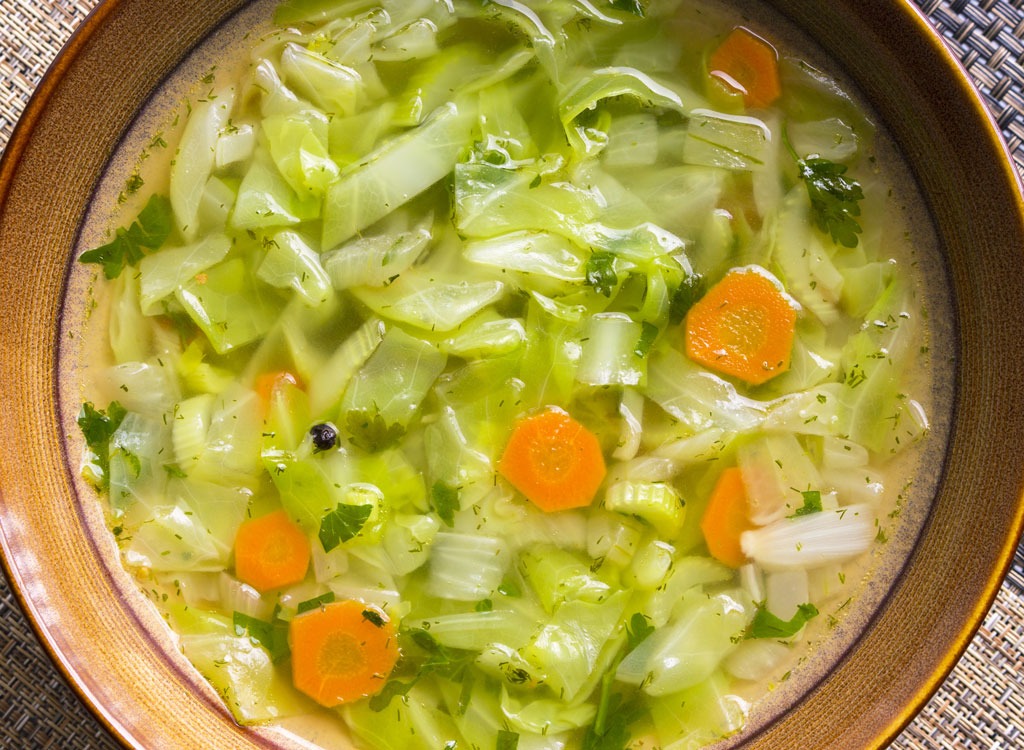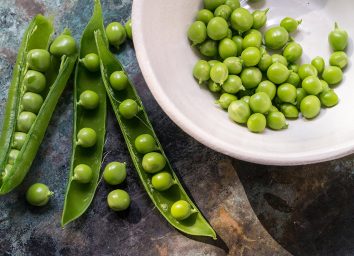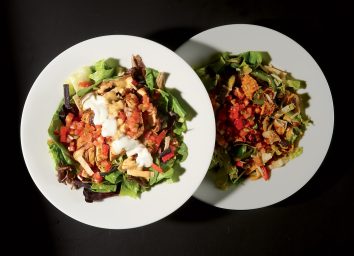Should You Try the Controversial Cabbage Soup Diet? See What Experts Have to Say

Attention soup-slurpers and slaw-lovers—have you heard about a diet that requires you to cut out (almost) all other food but cabbage soup? Originally popularized in the 1980s, the Cabbage Soup Diet—also called the Military Cabbage Diet, TJ Miracle Soup Diet, Sacred Hospital Diet, and Russian Peasant Diet at various times—promises rapid weight loss. Sure, you’ve heard of eating more leafy greens to promote weight loss, but the Cabbage Soup Diet takes things to the next level.
How does the cabbage soup diet work?
It works exactly as its name implies: You eat nothing but homemade cabbage soup for a week. Well, nothing but the soup and a very specific list of foods that can be eaten in addition to the soup, in varying—and seemly random—quantities, on each of the seven days. For example, on day 4 of the diet in addition to eating as many bowls of soup as you want, you can also eat up to eight bananas and an unlimited amount of skim milk, and on day 5, it’s up to six fresh tomatoes and an unlimited quantity of beef.
The plan is only 7-days long and promises 10 pounds of weight loss within that time. Folks are encouraged to take at least two weeks off before repeating the plan.
What is the cabbage soup diet recipe?
There are a few different cabbage soup recipes permitted on the diet. But according to Cabbage-Soup-Diet.com the go-to recipe includes a combination of onions, garlic, green peppers, tomatoes, carrots, mushrooms, celery, cabbage, and some V8 juice and water.
What else can you eat on the cabbage soup diet?
The Cabbage Soup Diet has a very specific 7-day meal plan that lists out what, in addition to as much cabbage soup as you want, you can eat.
The Cabbage Soup Diet Meal Plan
- Day 1: Unlimited fruit (except bananas), unsweetened tea, cranberry juice, water
- Day 2: Unlimited fresh, raw, or cooked vegetables (with emphasis on leafy greens), except for dry beans, peas, and corn. Big baked potato for dinner.
- Day 3: Unlimited vegetables and fruit (except bananas)
- Day 4: Up to eight bananas and unlimited skim milk
- Day 5: Up to six fresh tomatoes, between 10 ounces and 20 ounces of beef or broiled fish
- Day 6: Unlimited beef and vegetables (with emphasis on leafy greens)
- Day 7: Unlimited vegetables, unsweetened fruit juice, and enough brown rice to feel stuffed
Is the cabbage soup diet healthy?
Registered dietitian Maggie Michalczyk, RDN, founder of Once Upon A Pumpkin, notes that specific foods allowed on the diet—cabbage, leafy greens, vegetables, fruit, brown rice, lean meat, and skim milks—will deliver some key vitamins and nutrients.
Cabbage, which often gets overlooked for its green leafy cousin, kale, is especially healthy. “It is great for digestion, it is packed with nutrients like vitamin C and vitamin K, it is a known anti-inflammatory, promotes heart health, and may help reduce blood pressure and cholesterol levels,” says Michalczyk. And because “cooking cabbage actually makes its nutrient content more readily available to your body,” according to Michalczyk, cabbage soup is actually more nutrient-dense than the raw lettuce.
However, that doesn’t mean that the diet is healthy. While it’s high in fiber and certain nutrients, “it’s very low in calories, protein, fats, and other vitamins and minerals,” says Jonathan Valdez, RDN., owner of Genki Nutrition and spokesperson for the New York State Academy of Nutrition and Dietetics. “While soup can make you feel full because of the sheer volume of the liquid, it lacks any fat or protein, so it’s not going to keep you full for very long or give you the energy you need to thrive,” he says. Hello, belly-bloat and hanger.
Registered dietitian Jessica Cording, MS, RD, CDN, author of the forthcoming The Little Book of Game-Changers: 50 Healthy Habits For Managing Stress & Anxiety, warns that this diet encourages unhealthy behavior around food, especially for people with a history of disordered eating. “This diet somehow manages to simultaneously restrict your intake and promote binging at the same time,” she says. (See day 7 for proof.)
Will you lose weight on the cabbage soup diet?
While there’s been no research on the cabbage soup diet’s effectiveness, all three nutritionists agree: In the short term you will lose weight.
“A diet this restrictive is going to have a very low-calorie intake,” says Valdez. While calories-in will vary day to day, and based on how much cabbage soup you manage to consume, he estimates most people’s calorie intake will drop to 1,000 to 1,200 per day. Considering a 150-pound woman of moderate activity level should be consuming about 1,800 and a 200-pound man of the same activity level should be consuming about 2,400 calories a day, this is a huge deficit. The result? You’ll see a smaller number on the scale at the week’s end.
Valdez warns the weight loss likely won’t last. Most of the weight loss comes from water weight, which you’ll easily gain back when you resume your normal regime, he says.
In the long term, the plan could even lead to weight gain. “When you drastically reduce your calorie intake, your body goes into starvation mode, which slows down your metabolism,” Valdez explains. “A slower metabolism can result in halted weight loss for some and weight gain for others.”
One of the diet’s other claims to fame is that it “melts away fat”, but Valdez says, “There are no foods in the world that magically melt away fat.” The best way to reduce body fat is through regular strength training and moderate protein intake, he says. And day 6 of the diet is the only day where you’re consuming much protein at all.
“If you stick with this diet, you could experience muscle tissue loss, which will contribute to even less fat loss and weight loss,” he says.
Are there any health risks of the cabbage soup diet?
The short-term weight loss comes with addition drawbacks. The main ones, according to Cording, is that “the plan doesn’t promote moderation, teach you how to integrate all food groups into your diet, or deal with the behavioral component of weight loss.” In short, it’s a quick-fix, not a long-term solution.
Cording and Valdez say some of the other side effects you might experience from the cabbage soup diet include:
- Nutrient deficiency
- Muscle loss
- Increased susceptibility to gallstones
- Hair loss
- Gastrointestinal distress
- Flatulence and cramping
- Electrolyte imbalance
“The gastrointestinal side effects will be particularly severe if you have any current gastrointestinal issues,” says Valdez.
Bottom line: Should you try the cabbage soup diet?
Overall, “This diet is an absolute miss and would not be anything I would encourage anyone to do,” says Michalczyk. If you love cabbage or soup, go ahead and include some cabbage soup into your current eating plan. But as she says, “You don’t have to go on the cabbage soup diet to get more of the cruciferous vegetable.”
For a better, safer, more sustainable weight loss approach, Cording recommends hiring a registered dietitian who can work with you to come up with a long-term, sustainable plan based on your health and fitness goals. “People are hesitant to work with a dietitian because of the cost, but it’s a short-term investment for education and results that will stay with you for a long long time.”








